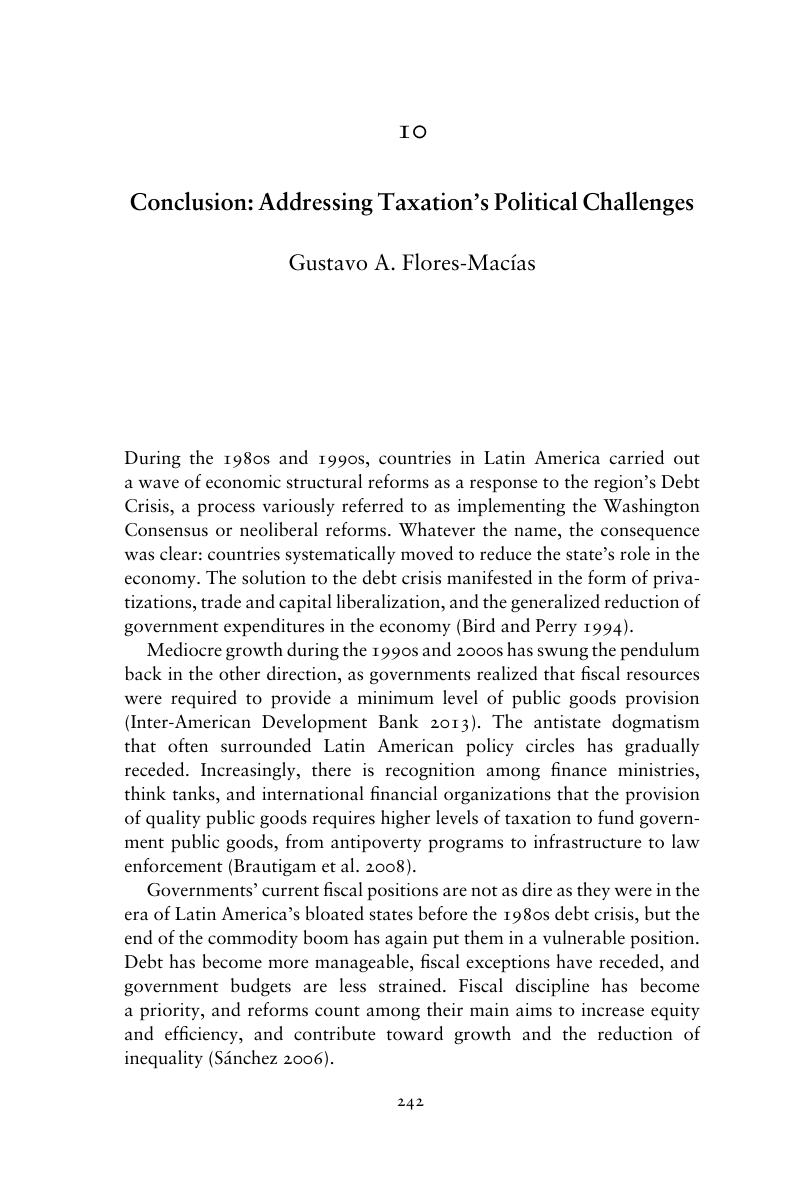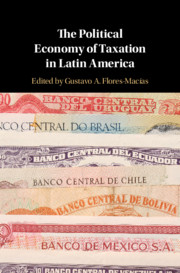Book contents
- The Political Economy of Taxation in Latin America
- The Political Economy of Taxation in Latin America
- Copyright page
- Contents
- Figures
- Tables
- Contributors
- Acknowledgments
- 1 Introduction: The Political Economy of Taxation in Latin America
- 2 The Political Economy of Oil Taxation in Latin America
- 3 Economic Growth and Tax Compliance in Latin America
- 4 Once Bitten, Twice Shy: Path Dependence, Power Resources, and the Magnitude of the Tax Burden in Latin America
- 5 Federalism and Taxation
- 6 Particularistic Political Institutions and Tax Neutrality in Latin America*
- 7 Taxing Latin America’s Economic Elites
- 8 Weak Liberalism and Weak Property Taxation in Latin America*
- 9 Preferences for Redistribution and Tax Burdens in Latin America
- 10 Conclusion: Addressing Taxation’s Political Challenges
- Index
- References
10 - Conclusion: Addressing Taxation’s Political Challenges
Published online by Cambridge University Press: 18 June 2019
- The Political Economy of Taxation in Latin America
- The Political Economy of Taxation in Latin America
- Copyright page
- Contents
- Figures
- Tables
- Contributors
- Acknowledgments
- 1 Introduction: The Political Economy of Taxation in Latin America
- 2 The Political Economy of Oil Taxation in Latin America
- 3 Economic Growth and Tax Compliance in Latin America
- 4 Once Bitten, Twice Shy: Path Dependence, Power Resources, and the Magnitude of the Tax Burden in Latin America
- 5 Federalism and Taxation
- 6 Particularistic Political Institutions and Tax Neutrality in Latin America*
- 7 Taxing Latin America’s Economic Elites
- 8 Weak Liberalism and Weak Property Taxation in Latin America*
- 9 Preferences for Redistribution and Tax Burdens in Latin America
- 10 Conclusion: Addressing Taxation’s Political Challenges
- Index
- References
Summary

- Type
- Chapter
- Information
- The Political Economy of Taxation in Latin America , pp. 244 - 266Publisher: Cambridge University PressPrint publication year: 2019



